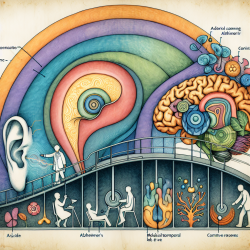In today's digital age, mobile apps have become a vital tool in enhancing autism care, diagnosis, and intervention. The research article "A Survey on Autism Care, Diagnosis, and Intervention Based on Mobile Apps Focusing on Usability and Software Design" provides critical insights into how these apps can be effectively utilized. By understanding and implementing the outcomes of this research, practitioners can significantly improve their skills and the outcomes for children with autism.
Key Findings from the Research
The research categorizes mobile apps into five main types:
- Autism support apps
- Educational apps
- Parental support apps
- Teacher training apps
- Data collection apps
Each category serves different primary users, including individuals with ASD, parents, teachers, and clinicians.
Enhancing Usability through User-Centered Design
The study highlights that user-centered design (UCD) is the most effective approach for developing these apps. This involves:
- Understanding the users
- Involving users in defining requirements
- Iterative design and evaluation
For instance, apps like PuzzleWalk and SimpleTEA were developed using UCD, ensuring they meet the specific needs of individuals with ASD.
Mechanisms to Improve User Engagement
To keep users engaged, the research suggests incorporating:
- Gamification
- Virtual reality
- Autism-specific mechanisms
These elements make the apps more enjoyable and effective in maintaining user interest.
Theoretical Foundations for Effective Interventions
The study also emphasizes the importance of theoretical foundations such as:
- Augmentative and Alternative Communication (AAC)
- Video Modeling
- Behavior Change Techniques (BCT)
These frameworks ensure that the interventions provided through the apps are evidence-based and effective.
Encouraging Further Research
Practitioners are encouraged to delve deeper into the findings of this research to continuously improve their practice. By staying informed about the latest developments and incorporating evidence-based tools, they can provide the best possible care for children with autism.To read the original research paper, please follow this link:
A Survey on Autism Care, Diagnosis, and Intervention Based on Mobile Apps Focusing on Usability and Software Design.










